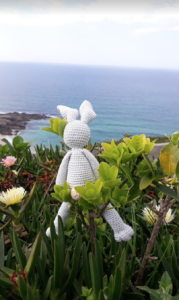I giggled inwardly when one of my highschool students asked if I could agree that “less is more.” Hmmm, coming from a student who actively made efforts to more often do less, this was comical. But now, with a step back, I feel that there could be some truth to this phrase.
Very often, we do too much. Do you make a conscious effort to do less? Not many people will. And it does sometimes take more effort to do less. Most adults and many kids too (with the help of their parents) are incredibly busy. All day long. Not necessarily physically busy all the time, but even more so, mentally. And our electronically enhanced connectedness enforces this.
If you own a mobile phone, and are on social media, you are most likely picking up that phone as soon as you have a moment in between doing other stuff. Am I right? Or you might even have a connected watch that helps you to make sure you are not missing any messages. Our phones keep our minds bouncing around from one thought to another, without us realizing it.
I truly believe that these habits are slowly but surely changing our brains. Evolutionarily speaking. Maybe it’s not all bad, but I don’t think it’s all good either. I spoke about this to my oldest (16 year olds) students one day. Briefly. They agreed and they quickly defended that during summer vacation, they hardly ever look at their phones because they are busy having fun with their friends.
So, when we are having fun, we don’t need that distraction. We can do without it. And the other times? Can we train ourselves to quiet our minds away from constant mental chatter? Definitely. It takes conscious effort. And I believe it’s worth working on.
Mindfulness and meditation practices are crucial to support our mental health. Recently, I listened to experts on anxiety and how we can help ourselves and others to deal with anxiety. Why was I listening to this? As a teacher, I am very concerned about students and their mental health. And I am not the only one. We are seeing more and more people (especially young ones) who suffer from anxiety.
Anxiety in small doses once in a while is not bad. It can be a boost, like stress in small doses can drive you to get things done. But chronic anxiety is as bad as chronic stress. What I did not know is that it has a direct effect on our immune system. Chronic anxiety causes inflammation in the body. That can lead to lots of different issues. Even auto-immune diseases. So, what can we do?
Take breaks. Slow down. Spend time perceiving the world around you with your senses. If you like being in nature, a forest, or near a beach or in a garden, try just being there by yourself (without the phone) and use your senses to perceive everything that is around you. Slowly and mindfully. Maybe you can listen to the birds and other sounds. Perhaps you can observe the different colors, shapes and movements that you see. Or maybe you can just sit there and smell the odors of nature – that’s especially wonderful if you are near the ocean or in a forest.
And then, take a moment and reflect on how that made you feel. Did your heart beat slow down? Maybe you even felt rested. If you like the experience, why not build it into your weekly routine? Over time, this practice will have health benefits.
I wish you well. Have a wonderful day. Until next time.
Annika


